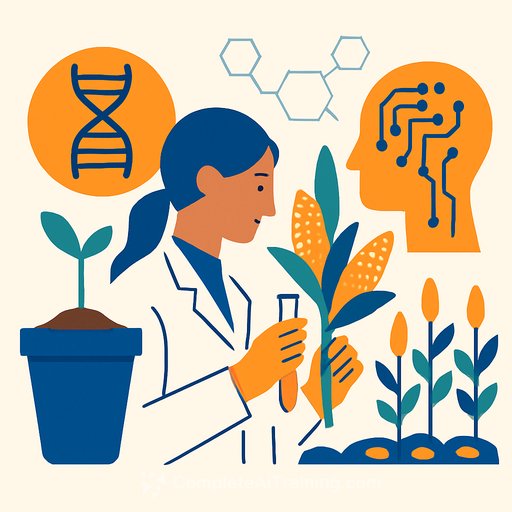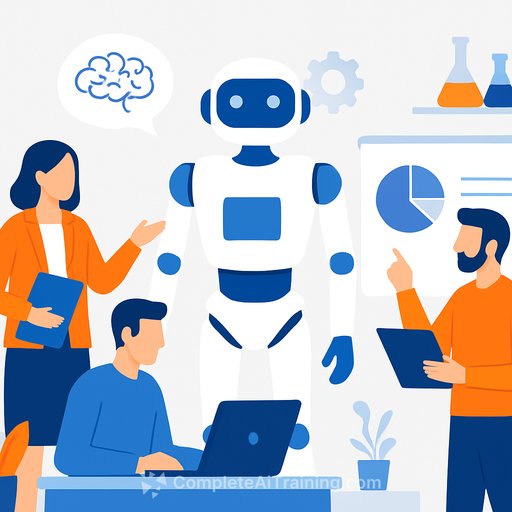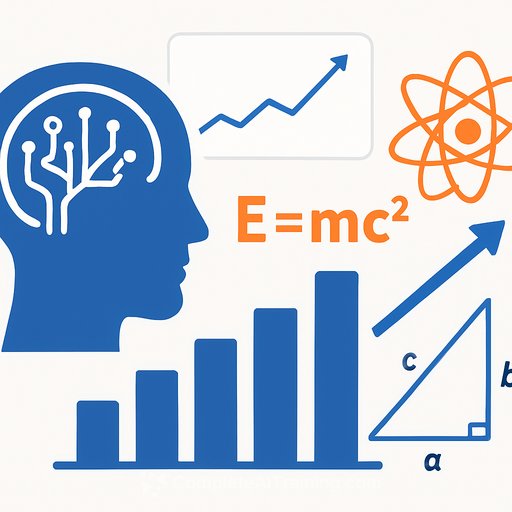Integrated Biotechnological and AI Innovations for Crop Improvement
Crops are essential, providing food, clothing, and many other products for the global population. As the world’s population continues to grow, improving crop yield, quality, and sustainability has become a critical priority. However, these goals face significant challenges due to environmental stresses and a limited pool of genetic resources.
Addressing these challenges requires a new approach that combines natural genetic diversity with advanced biotechnological methods. Techniques such as genome editing and the expression of custom-designed proteins offer powerful tools to enhance crop traits. When integrated with multimodal data analysis and artificial intelligence (AI), these technologies can accelerate crop improvement in unprecedented ways.
Leveraging Omics and Genome Editing
Omics technologies—including genomics, transcriptomics, proteomics, and metabolomics—allow researchers to analyze biological data at multiple levels. These insights help identify key genes and pathways that influence crop performance.
Genome editing tools, such as CRISPR, enable precise modifications in crop DNA. This precision allows the introduction or removal of specific traits to improve yield, disease resistance, or stress tolerance without introducing foreign DNA.
Protein Design and High-Throughput Phenotyping
Designing proteins tailored to enhance crop traits is another promising strategy. By expressing engineered proteins in plants, scientists can introduce functions that do not naturally occur, such as enhanced nutrient uptake or resistance to pests.
High-throughput phenotyping technologies provide rapid and detailed measurement of plant traits under various conditions. These data sets are critical for assessing the effectiveness of genetic modifications and for guiding breeding decisions.
AI-Enabled Integration and Analysis
Artificial intelligence plays a central role in managing and interpreting the vast amount of data generated by omics, genome editing, and phenotyping studies. AI models can predict the effects of genetic changes, identify elite alleles, and optimize breeding strategies.
An AI-driven framework can also facilitate the incorporation of beneficial alleles into both existing crops and newly domesticated species. This approach supports sustainable crop improvement by accelerating the development of varieties suited to diverse environments.
Challenges and Future Perspectives
- Integrating diverse data types remains complex and requires advanced computational tools.
- Ethical and regulatory considerations around genome editing vary globally and affect adoption.
- Translating laboratory success into field performance demands extensive validation and adaptation.
Despite these challenges, the combined use of biotechnological tools and AI holds great promise for meeting the demands of future food production. By improving crop resilience and productivity sustainably, these innovations contribute to global food security.
For those interested in further exploring AI applications in agriculture and biotechnology, resources and courses are available at Complete AI Training.
Your membership also unlocks:






